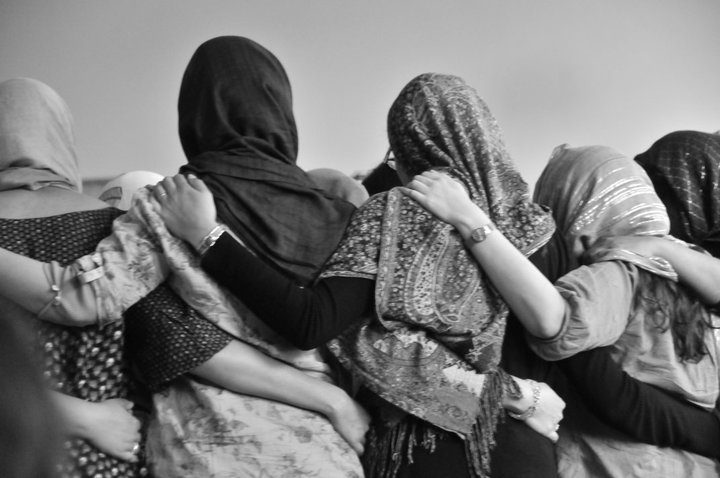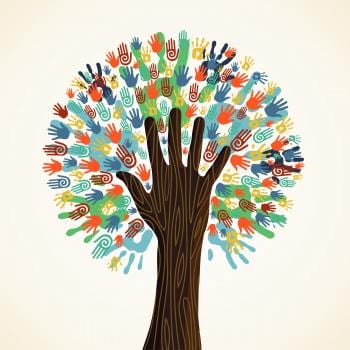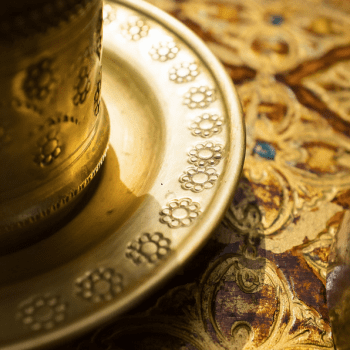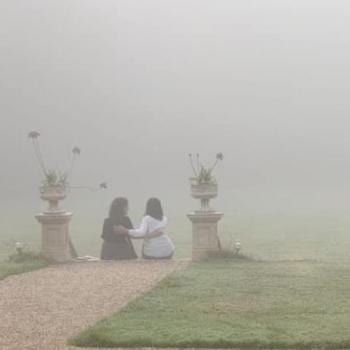
The porter runs to the heavy load and takes it from others,
knowing burdens are the foundation of ease
and bitter things the forerunners of pleasure.
See the porters struggle over the load!
It’s the way of those who see the truth of things.[Mathnawi II: 1834-6]
Every year these words preface our message to the team of bashis (helpers) that come together to manage the organisation of our annual UK retreat. The words are like a galvanising rod that kickstarts the pre-retreat experience for those who have volunteered to serve the community. I therefore associate this passage from the Mathnawi with the retreat, and specifically with our practice of service – learning how to serve in the most appropriate and adab-ful way, embodying as much as possible the teachings of our tradition, and deepening in love and companionship with members of our community, some of whom only see each other once a year at the annual retreat.
Mevlana is speaking to me about the importance of service on the Sufi path, in developing a healthy ego that is guided by truth and not enslaved to its whims and desires. In earlier times in a traditional Sufi tekkye, dervishes would all have tasks that not only developed their souls but supported the running of the tekkye: cleaning, cooking, gardening, etc. When we come together at a retreat it is an opportunity to taste that tekkye life, something that is far removed from most of our busy lives today, especially in the West.
In our tradition, service is seen as a privilege and not something that is demeaning or relegated to those of a lower social order. In the tekkye of old, dervishes came from rich or poor backgrounds – they all served side-by-side, learning the Sufi way together. A Turkish Sufi teacher has told us, “I have never had to punish anyone in our group, but if I did, the punishment would be not allowing them to serve, and only allowing them to be served!” How astonishing it is to imagine this outlook in our workplaces!
Over time I have come to see how service can trigger entitlement and self-importance – “But I’m too good to clean toilets!” We learn the importance of cleaning – how vital it is that our ablution station should always be in a state of purity. It’s no coincidence that the bathroom bashi role in a traditional tekkye was given to mature dervishes, those who had worked up the eighteen stations of service to finally receive the responsibility for cleansing that which purifies our bodies and our state, in turn making us (as much as possible) receptive souls to the transmission from the teacher – and ultimately God.
The framework of service has allowed me to be happily active in our community. It has been a natural way for me to bridge my work life and my spiritual life, bringing my events and project management experience into an otherwise new and challenging space. But it has taken me a while to see how Mevlana’s words apply not just to the outer aspects of “running to serve” and being helpful, but to my inner world. I find it easy to immerse myself in outer planning and needs, but this can sometimes be a distraction from my internal work. All practices on the Sufi path are connected to developing the soul, so serving outwardly affects us inwardly. It is difficult to look at how I serve myself, what aspects of my inner world need clearing, what burdens I happily shoulder, and which bitter thoughts I shrink from.
I have found that being in service in an intentional community is the fastest way to see my ego in action! Taking baggage from others can inflate the ego – “Look at me, I’m such a good dervish!” The trick is realising that it’s not about other people’s baggage but my own – am I ready and willing to see my ego at its worst, and work at transforming my state from self-importance to surrender? One of my dear teachers told me that when he first came to the path he saw how strongly his ego reacted in its need to be seen and heard, that he decided to spend the first five years in the community consciously reining in his desire to speak. I was (and still am) in awe of that story, desperately wanting it for myself whilst in the same instance seeing myself failing every hurdle! My nafs craves acknowledgment that what I am doing is right and needed. But awareness of a wider need and of our tradition – the appropriate way to do something – has shown me a deeper aspect beyond what I may think is “right and needed” in the moment.
Near the beginning of my Sufi journey I attended a California retreat where I was given a bashi duty to perform. I failed miserably. At one stage, the head bashi came up to me and very gently pointed out something that was lacking in my area of responsibility. My response was to tell them how to fix it. They held my eyes for a moment – just long enough to bring me back to presence and make me realise that I needed to get off my backside and fix it myself! I was completely mortified, and as the years have passed my mortification has only increased as I become more knowledgeable about the tradition. But I am very grateful for the teaching moment, not just in seeing how my ego reacted but very importantly in how the head bashi behaved. Their calm yet firm demeanour was a beautiful example of how to embody the best of this tradition – and how to pass it on.
Doing these practices when in our spiritual community invariably affects our daily lives. My sense of beauty and coherence has deepened – things that I once saw just as a “task” that needed doing at a retreat I now find myself doing with intention in my home, and when I am with family and friends. A friend on the path recently shared with me how they consciously try to carry the service and adab we hold at retreats into their home and the homes of fellow dervishes, even when socialising – remembering that adab is not limited to the time we consciously come together but in all our moments with every aspect of creation, publicly or privately, and with ourselves.
Alhamdulillah, I feel I can say that things have got easier for me with each passing year. Being in the crucible of community, bearing the friction that ultimately cleans a little rust off the mirror of my heart, I find more periods of surrender and acceptance of what comes, through expansion and contraction. My nafs still craves acknowledgment, but it is tempered by really knowing that I am loved and having experienced so many blessings on this path, with my community and blessed teachers leaving footprints on the path before me.












